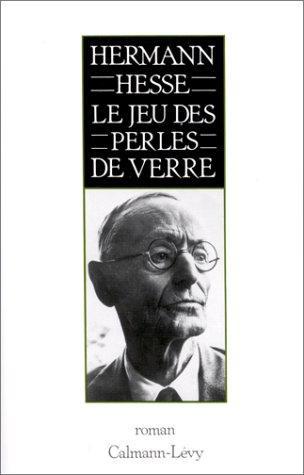French language
Published Nov. 6, 1975 by Calmann-Lévy.

French language
Published Nov. 6, 1975 by Calmann-Lévy.
The Glass Bead Game (German: Das Glasperlenspiel, pronounced [das ˈɡlaːspɛʁlənˌʃpiːl] (listen)) is the last full-length novel by the German author Hermann Hesse. It was begun in 1931 in Switzerland, where it was published in 1943 after being rejected for publication in Germany due to Hesse's anti-Fascist views."The Glass Bead Game" is a literal translation of the German title, but the book has also been published under the title Magister Ludi, Latin for "Master of the Game", an honorific title awarded to the book's central character. "Magister Ludi" can also be seen as a pun: magister is a Latin word meaning "teacher", while ludus can be translated as either "game" or "school". But the title Magister Ludi is somewhat misleading, as it implies the book is a straightforward bildungsroman, when, in reality, the book touches on many different genres, and the bulk of the story is on one level a parody …
The Glass Bead Game (German: Das Glasperlenspiel, pronounced [das ˈɡlaːspɛʁlənˌʃpiːl] (listen)) is the last full-length novel by the German author Hermann Hesse. It was begun in 1931 in Switzerland, where it was published in 1943 after being rejected for publication in Germany due to Hesse's anti-Fascist views."The Glass Bead Game" is a literal translation of the German title, but the book has also been published under the title Magister Ludi, Latin for "Master of the Game", an honorific title awarded to the book's central character. "Magister Ludi" can also be seen as a pun: magister is a Latin word meaning "teacher", while ludus can be translated as either "game" or "school". But the title Magister Ludi is somewhat misleading, as it implies the book is a straightforward bildungsroman, when, in reality, the book touches on many different genres, and the bulk of the story is on one level a parody of the biography genre.In 1946, Hesse won the Nobel Prize in Literature. In honoring him in its Award Ceremony Speech, the Swedish Academy said that the novel "occupies a special position" in Hesse's work. In 2019, the novel was nominated for the 1944 Retrospective Hugo Award for Best Novel.